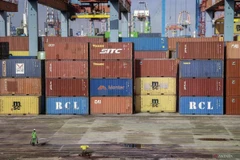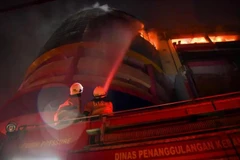Singapore (VNA) - Prime office real estate inSingapore’s central business district (CBD) is highly susceptible to the riskof flooding as sea levels rise due to global warming, property consultants CBREsaid in a report on July 23.
It said 51 buildings with about 20.8 million square feet (1.9 million sq.m) of office space are in highflood risk areas, assuming that average global temperatures would rise 1.5degree Celsius between 2030 and 2052 as a UN panel has estimated.
The city-state’s Marina Bay area with soaring office towersworth billions of USD is the most vulnerable, CBRE said.
Much of Singapore’s financial district, where numerousmulti-national companies and banks have offices, is built on reclaimed land andis less than 5 metres above sea level.
Assuming global temperatures rise by 4 degrees Celsius bythe year 2100, an additional 4 million square feet of office area across 13buildings in the CBD may be under threat, CBRE added.
It further noted that Singapore is vulnerable to prolongedheat waves, increased flash floods and rising sea levels as a result of climatechange.
While the government has adopted several preemptivepolicies to mitigate the impact, the measures do not completely eradicate therisks.
Protecting Singapore against rising sea levels could cost 100billion SGD (72 billion USD) or more over 100 years, according to the Singaporeangovernment.
In 2019, the government said it would spend 400 million SGDto upgrade and maintain the country’s drains and strengthen its floodresilience./.





























